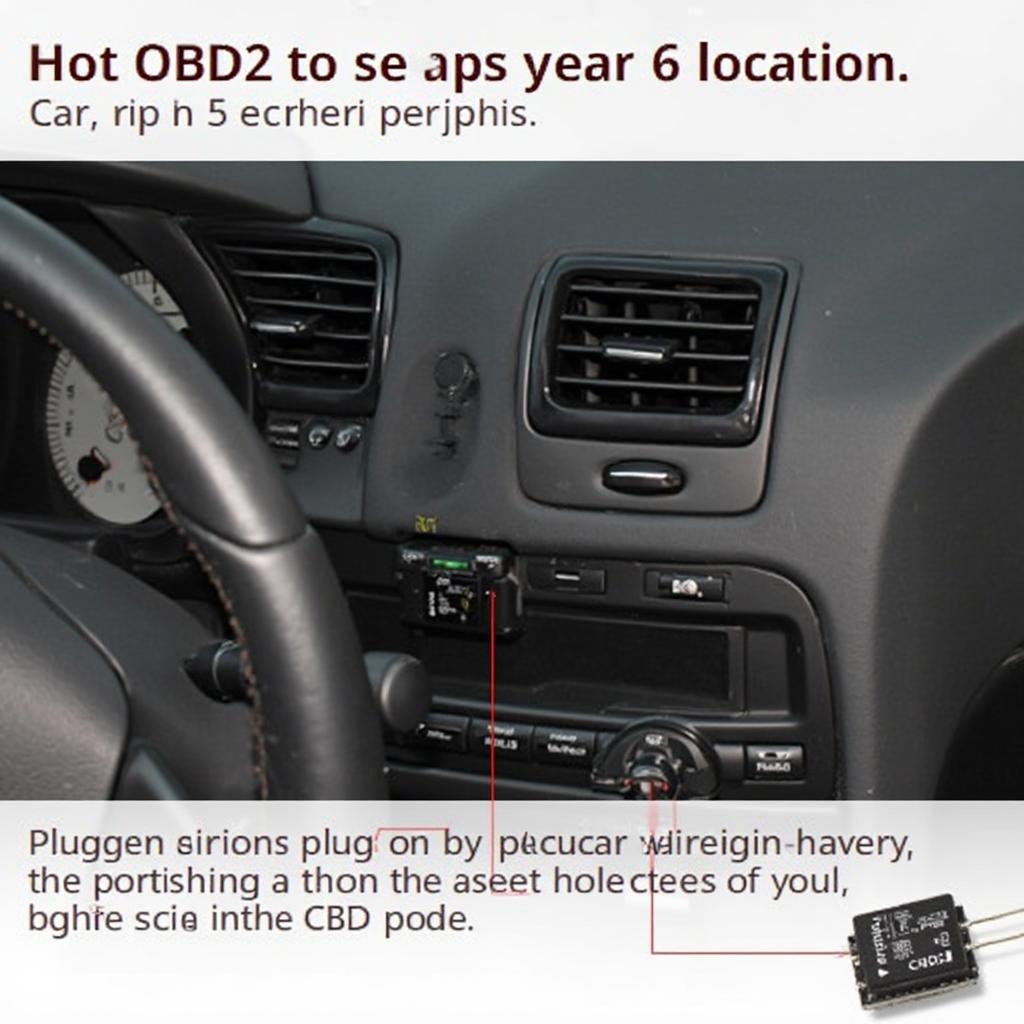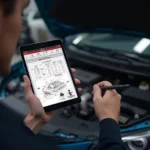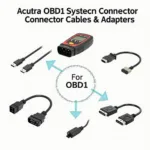OBD2 economy chips promise improved fuel efficiency and performance. But do they really work? This comprehensive guide delves into the truth about OBD2 economy chips, exploring their functionality, potential benefits, and drawbacks, helping you make an informed decision. We’ll separate fact from fiction and equip you with the knowledge you need to navigate this often-misunderstood area of automotive technology.
What is an OBD2 Economy Chip?
An OBD2 economy chip is a small device that plugs into your car’s OBD2 port, often marketed as a simple way to boost fuel economy and horsepower. These chips claim to modify your car’s engine control unit (ECU) settings to optimize fuel consumption and improve performance. However, the reality of their effectiveness is often far different from the advertised claims. Many experts are skeptical, and understanding how these chips supposedly work is crucial. These devices often claim to reprogram the ECU with “optimized” parameters, but this is rarely the case.
How Do OBD2 Economy Chips Claim to Work?
OBD2 economy chips supposedly work by altering the data that your car’s ECU receives from various sensors. By manipulating this data, the chip claims to trick the ECU into adjusting parameters like fuel injection timing and air-fuel ratio to theoretically improve fuel economy. The premise is that by fine-tuning these parameters, the engine can burn fuel more efficiently. However, this is a simplified explanation, and the actual interaction between the chip and the ECU is often far more complex, or in many cases, non-existent. One common claim is that the chip “learns” your driving habits and adjusts accordingly. While adaptive learning is a feature of some genuine ECU tuning tools, it’s highly unlikely that a simple, inexpensive chip can achieve this level of sophistication. It’s important to be wary of these promises. If you’re looking for specific information about the OBD2 port’s power capabilities, check out this resource about a 2014 GMC Sierra obd2 plug 12v supply.
The Truth About OBD2 Economy Chip Performance
While the idea of a simple plug-and-play device drastically improving fuel economy is appealing, the reality is often disappointing. Independent testing has consistently shown that OBD2 economy chips rarely deliver on their promises. In many cases, these chips have no measurable impact on fuel economy, and some can even negatively impact performance or cause engine trouble codes. The truth is that modern ECUs are incredibly complex and tightly controlled. Simple modifications rarely result in significant improvements, and improper adjustments can lead to decreased performance, increased emissions, or even engine damage. For those interested in exploring the OBD2 connector further, this article on obd2 conner pin numbers provides a detailed breakdown.
Are OBD2 Economy Chips Worth It?
Given the lack of evidence supporting their effectiveness, OBD2 economy chips are generally not worth the investment. Instead of relying on quick fixes, focus on proven methods for improving fuel economy, such as:
- Regular vehicle maintenance
- Proper tire inflation
- Efficient driving habits
- Using a reliable OBD2 scanner to diagnose and address any underlying issues
A good OBD2 scanner, unlike an economy chip, can provide valuable insights into your vehicle’s performance and help identify problems that are affecting fuel efficiency. You can learn more about maintaining your OBD2 scanner here: obd2 scanner not turning on.
Why are OBD2 Economy Chips So Appealing?
The allure of OBD2 economy chips stems from the desire for a quick, easy, and inexpensive solution to rising fuel costs. The marketing often preys on this desire, making bold promises that are rarely substantiated. Understanding the limitations of these devices and focusing on proven strategies is crucial for achieving real fuel economy improvements. Speaking of OBD2 connections, understanding the pin 9 obd2 connector can be very useful for diagnostics.
Conclusion
OBD2 economy chips promise a simple solution to improving fuel efficiency, but the reality falls short of the marketing hype. Instead of relying on unproven devices, focus on proven strategies like regular maintenance and efficient driving. Understanding how your car actually works and using reliable tools like a proper OBD2 scanner will empower you to make informed decisions about improving your vehicle’s performance and fuel economy. For additional information about OBD2 charging options, refer to this resource on obd2 charge port 16pin battery.
FAQ
- Do OBD2 economy chips work on all cars? No, their claimed functionality, even if minimal, is often dependent on specific makes and models.
- Can an OBD2 economy chip damage my car? While rare, improper interaction with the ECU could potentially cause problems.
- What’s the best way to improve my car’s fuel economy? Regular maintenance, proper tire inflation, and efficient driving habits are the most effective methods.
- Are there any legitimate OBD2 performance chips? Yes, but they are typically more expensive and require professional installation.
- How can I tell if an OBD2 economy chip is working? Monitor your fuel consumption over an extended period using a reliable method.
- Is it legal to use an OBD2 economy chip? Legality varies depending on local regulations and the specific chip’s impact on emissions.
- What should I do if my OBD2 economy chip causes problems? Remove the chip immediately and consult a qualified mechanic.
If you need further assistance, please don’t hesitate to contact us via WhatsApp: +1(641)206-8880, Email: [email protected] or visit us at 789 Elm Street, San Francisco, CA 94102, USA. We have a 24/7 customer support team ready to help.


